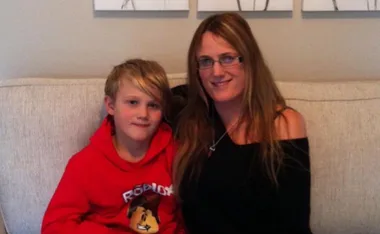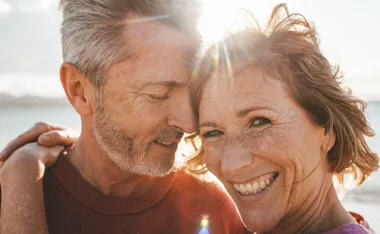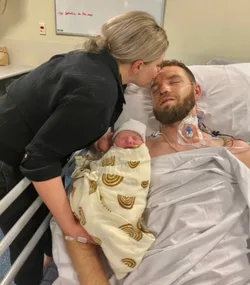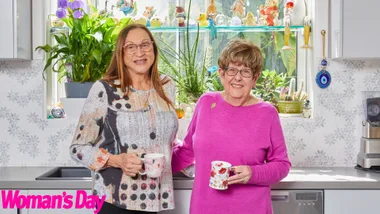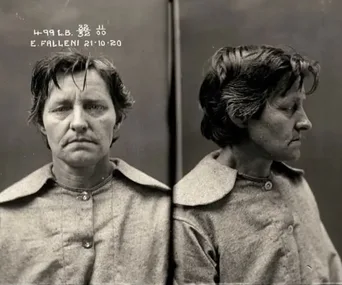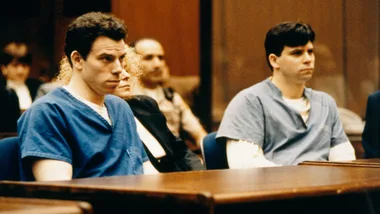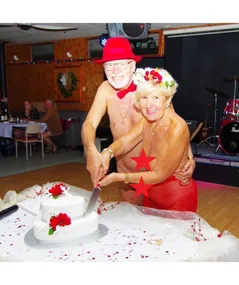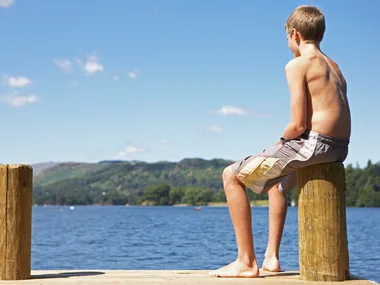Teetering on plastic high heels, resplendent in a scratchy polyester princess dress, my four-year-old twirls around the living room through the closing credits of a Barbie movie, with minimal grace but maximum gusto. “Do I look fablius?” she asks – and I feel like a feminist (and linguistic) failure of a mother.
If I was doing a halfway decent job
of “empowering” my daughter, she’d probably be climbing a tree or collecting tadpoles. Instead, she’s striking a pose with a tutu slung under her belly and peanut butter smeared across her face, wondering whether she’s “bootiful”.
And, of course, she is – she’s my baby, in all her pudgy-limbed deliciousness – but why is she even asking? After only four years steeped in this beauty-obsessed society, has she already decided that a woman’s value is essentially decorative? That her appearance is fair game for public judgment?
Like a lot of mothers, I tell my three girls they’re beautiful (and kind and clever and funny) because I think they are, but also because I hope it might sink in and inoculate them against the onslaught
of modern marketing; I figure the world will tell them all too soon where they supposedly fall short, so the praise is
a sort of pre-emptive strike.
Yet some experts in the parenting brigade insist
that telling a girl she’s beautiful only damages her self-esteem and sets her
up for body-image issues.
One Huffington Post writer argues that we must resist the automatic urge to remark on a little girl’s clothes/curls/cuteness: “Teaching girls that their appearance is the first thing you notice tells them that looks are more important than anything. It sets them up for dieting at age five and foundation at age 11 and boob jobs at 17 and Botox at 23.”
Another offers this advice: “How to talk to your daughter about her body, step one: don’t talk to your daughter about her body, except to teach her how it works.”
And perhaps that’s a fair call.
I would never say anything about weight – theirs or anyone else’s – in front of my girls, but does that mean all comments about their attractiveness are out of bounds, too? Not necessarily, according to clinical psychologist Dr Vivienne Lewis.
“We can become too careful and then we end up not giving our daughters
any compliments whatsoever,” says
Dr Lewis, who has penned a self-help book for mothers and daughters, Positive Bodies: Loving the Skin You’re In.
“There’s nothing wrong – actually it’s very positive – for
a mother to say, ‘You’re gorgeous’ or ‘You’re beautiful’, because it doesn’t just mean aesthetically. If you love somebody, you naturally see them as beautiful.”
The key is balance.
Along with flattering comments about a girl’s appearance, there should be praise for her character and abilities, says Dr Lewis – because “if people only compliment you on your looks,
you can feel like you haven’t got anything else going for you”.
While some girls revel in the attention, Dr Lewis counsels others, including teen models, who find it oppressive.
“It can make them more anxious about their appearance,” she says, “because they feel pressured to maintain that look: ‘That’s what people compliment me on and that’s what people expect. What would happen if I wasn’t wearing make-up or if I gained a few kilos?’”
As a girl’s number-one role model, a mum can mean the difference between a sturdy self-image or a fragile one, depending on how kind she is to herself – so you can tell your daughter she’s good-looking all you like, but if you’re bemoaning the size of your backside on a semi-daily basis, she’s pretty much destined to do the same thing.
“They tend to copy, so if Mum is constantly dieting or self-conscious about her looks, they think, if there’s something wrong with Mum’s body, there must be something wrong with mine because
I came from her,” says Dr Lewis.
“If Mum
is saying, ‘I’m fat’ or ‘ugly’, it teaches girls
to put themselves down. [They learn that] that’s the way women talk about their bodies, that women need to be dieting and watching their weight.”
So don’t mention dieting to your daughters – oh, but make sure you teach them about healthy eating and exercise. (Don’t you love the potential booby-traps of parenting?) Dr Lewis admits it’s tricky, but mothers need to respect their bodies and “speak nicely” about them.
“It’s about being comfortable with your body, so if you’re going on a beach holiday, it’s being okay with being in your bathers,” she says. “And it’s hard because mothers have their own hang-ups that come from their own mothers.”
If the number of sarong-wearing mums staying out of the water at pool parties is any indication, it’s obvious that many of us will just have to fake body confidence for the sake of our daughters.
Because the stakes are high.
Recent studies have shown that children as young as three can develop a negative body image simply by absorbing messages from their parents and siblings. Body dissatisfaction creeps in early, with 40 to 50 per cent of primary school children saying they’re unhappy with the way they look. Three-quarters of high-school girls feel “fat” and want to lose weight, while 90 per cent of 12- to 17-year-olds are on some type of diet.
Butterfly Foundation chief Christine Morgan says children as young as seven are being admitted to hospital with eating disorders in Australia, which means that parents have to act.
In her opinion, though, telling girls they’re beautiful isn’t the problem – unless the compliment is linked to her physique.
“‘Gosh, you’ve lost
10 kilos, aren’t you beautiful?’ or ‘Wow, you’ve got a skinny waist and no bum’ – that’s danger territory,” she warns.
“Beauty is much more than our size and shape. It’s an engaging personality, a shine to your hair, a gorgeous smile, the way you live your life.”
Parents do face a conundrum, though: we tell our kids that looks don’t matter, even as all evidence points to the contrary.
“The reality is we do live in a society where appearance counts,” says Christine.
“We know it, but we don’t want them to buy into it. That’s the real challenge as parents. What I’m discovering is that we need to take the conversation further.”
Dishing out platitudes to your daughter isn’t enough because they are undone by almost every billboard, music video and celebrity magazine – or even by a thoughtless comment from an unreconstructed uncle. Children see the world in black and white, says Christine, so their notion of beauty needs to be broadened – or else they’ll end up waging a war they can never win.
“When beauty is defined by shape
and size, you can never get there because you’re always fighting your genetic predisposition,” she says. “You’re inviting people to value you according to where you are on the scales, and last time I checked, that didn’t make you a good
or bad person … But kids believe that, unless I look the right way, I’m not going to be successful.”
Parents need to teach their children media literacy, says Christine, so kids know that celebrity legs are electronically slimmed down and models’ pimples are airbrushed out. Unrealistic media images have power and the only way to dilute that power is to expose them, again and again, for the illusions that they are.
“By all means, tell your children they’re beautiful, but don’t have a shorthand conversation,” says Christine.
“Explain what it is. And continue to have that conversation, to reinforce what you
want them to understand as your
concept of beauty.”
In other words, feel free to delight in the sight of your child. If our daughters could only see themselves through our eyes, perhaps they would understand how imperfectly exquisite they actually are. Maybe then they could stop worrying about their looks – and start cultivating the qualities that last so much longer.
Newsletter conversion description. Get the latest in your inbox.











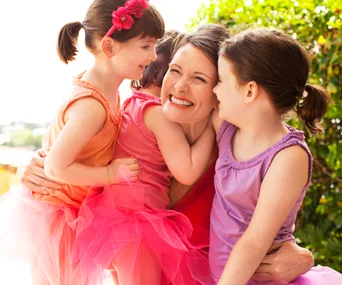
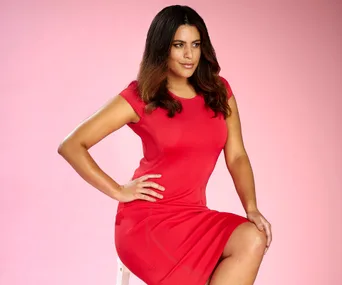

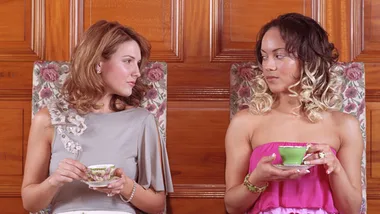





















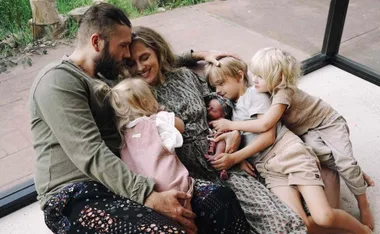






















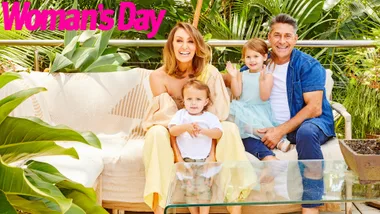






.jpg?resize=380%2C285)








.jpg?fit=650%2C367&resize=650%2C367)





